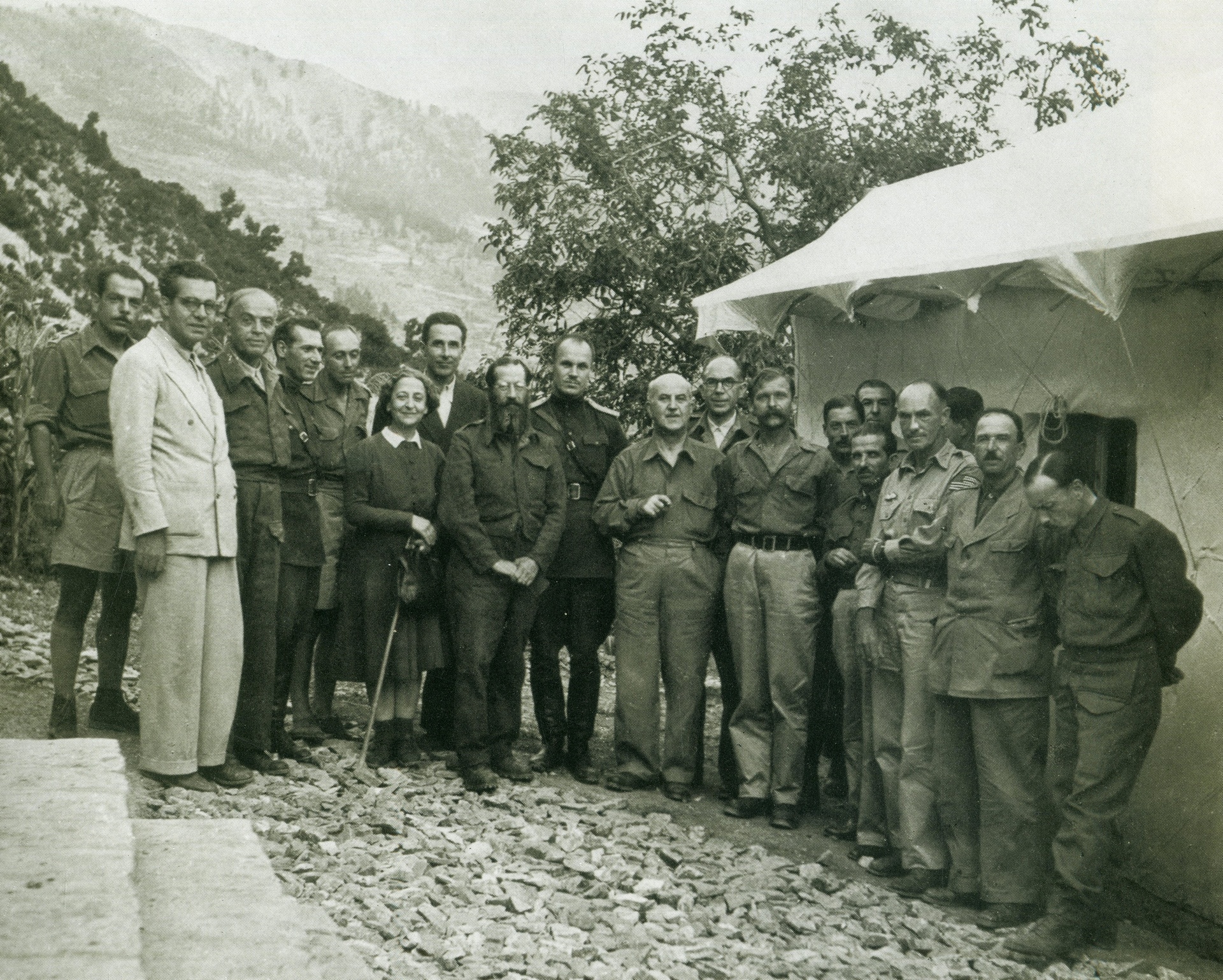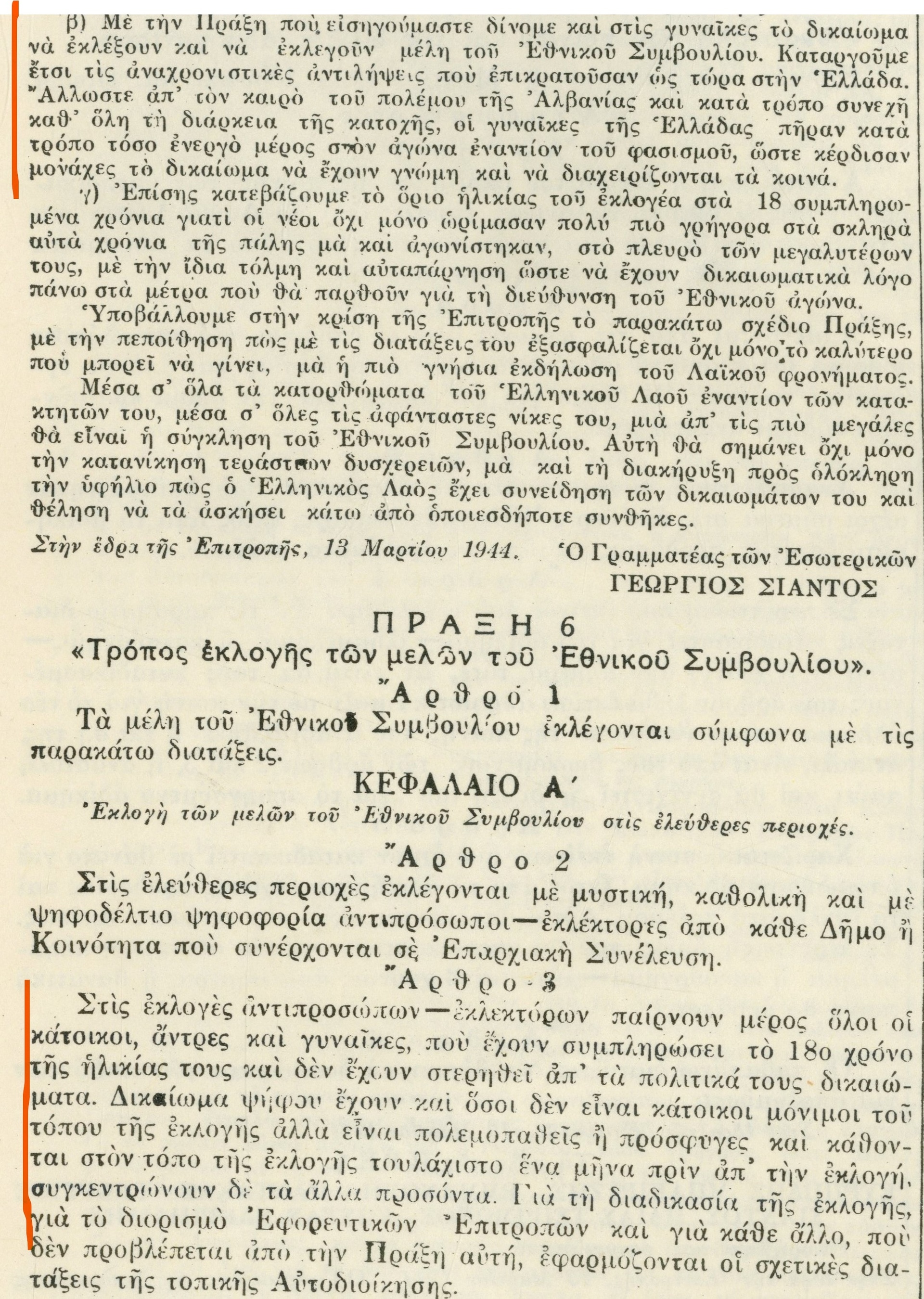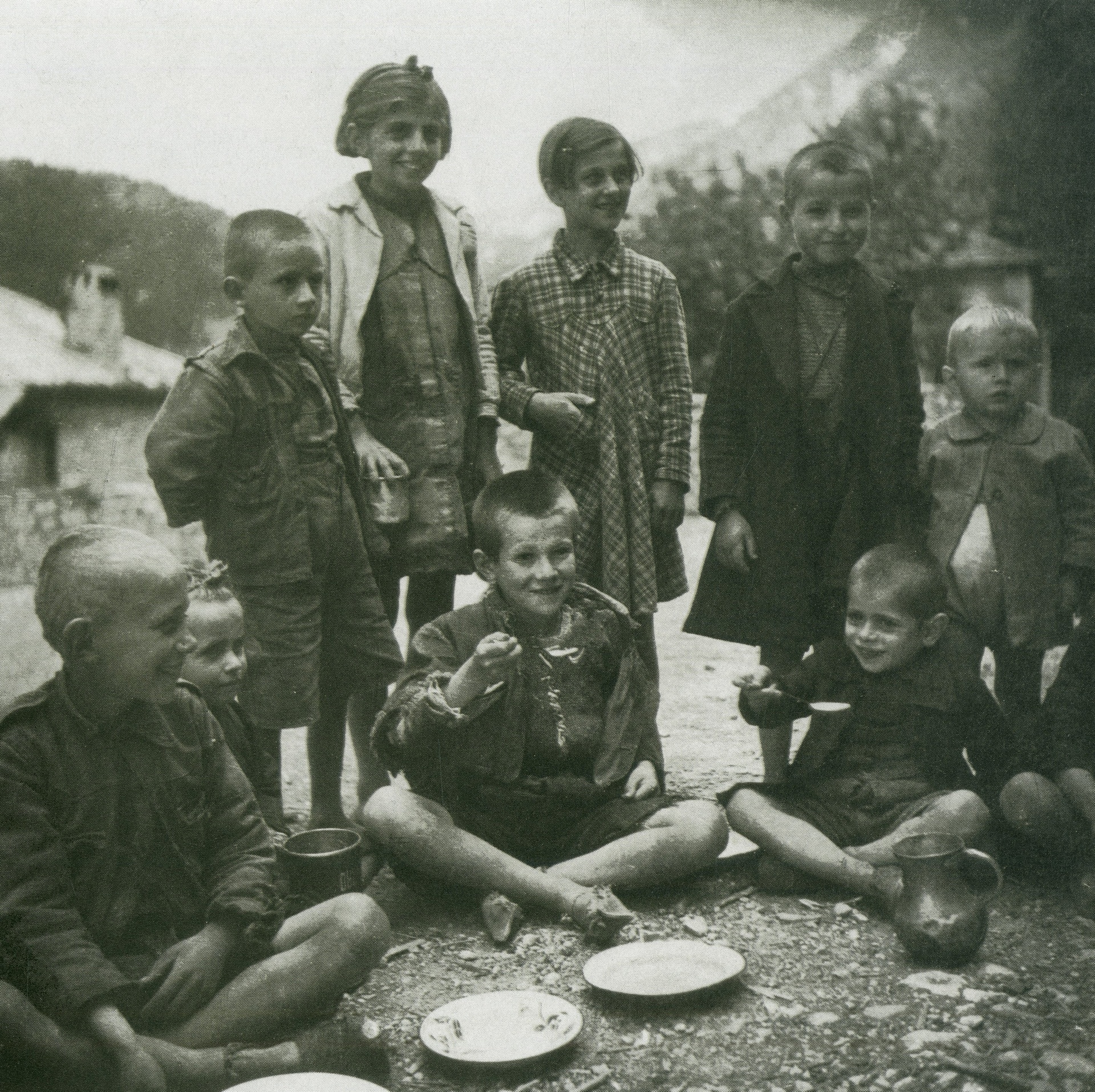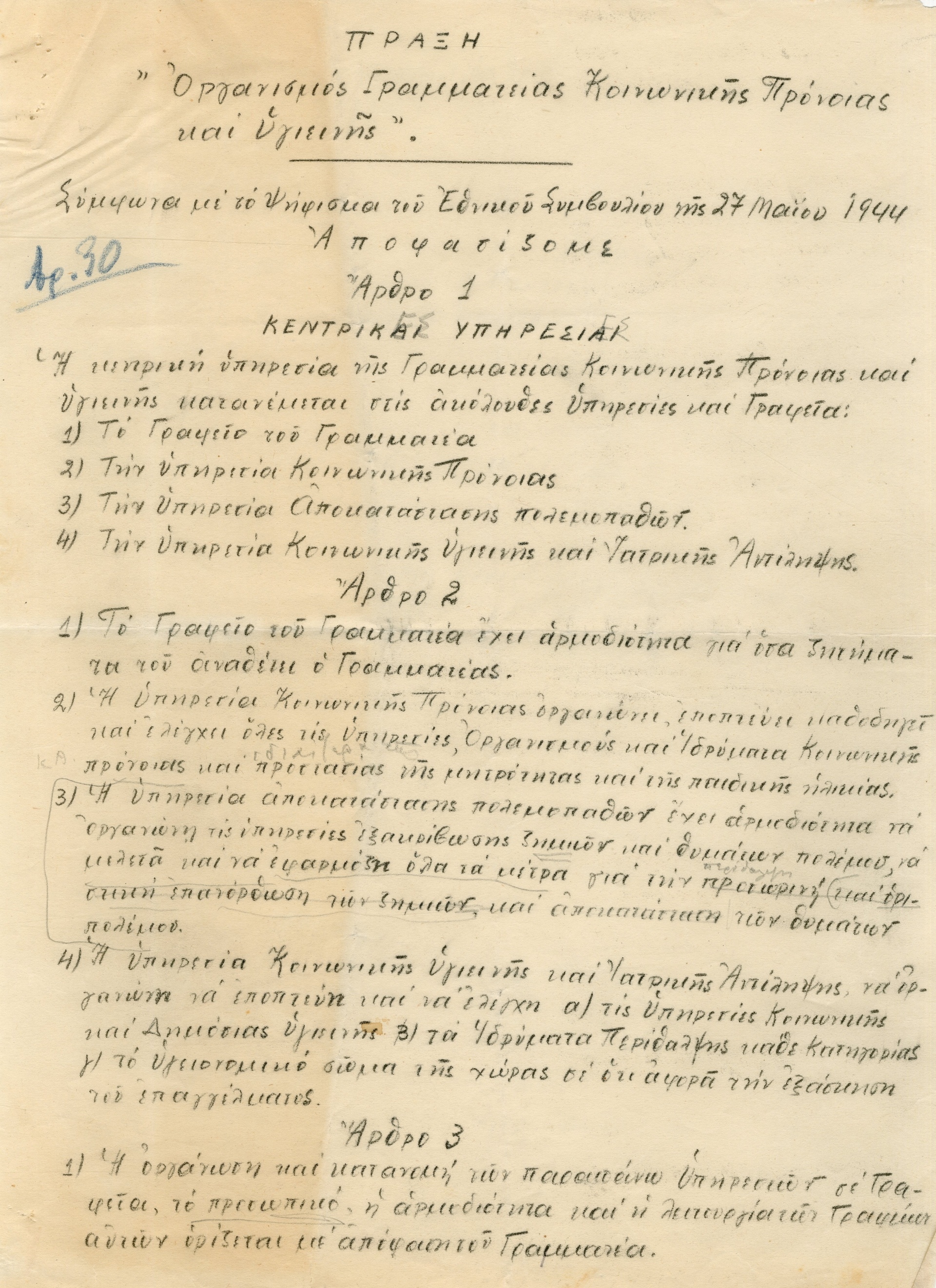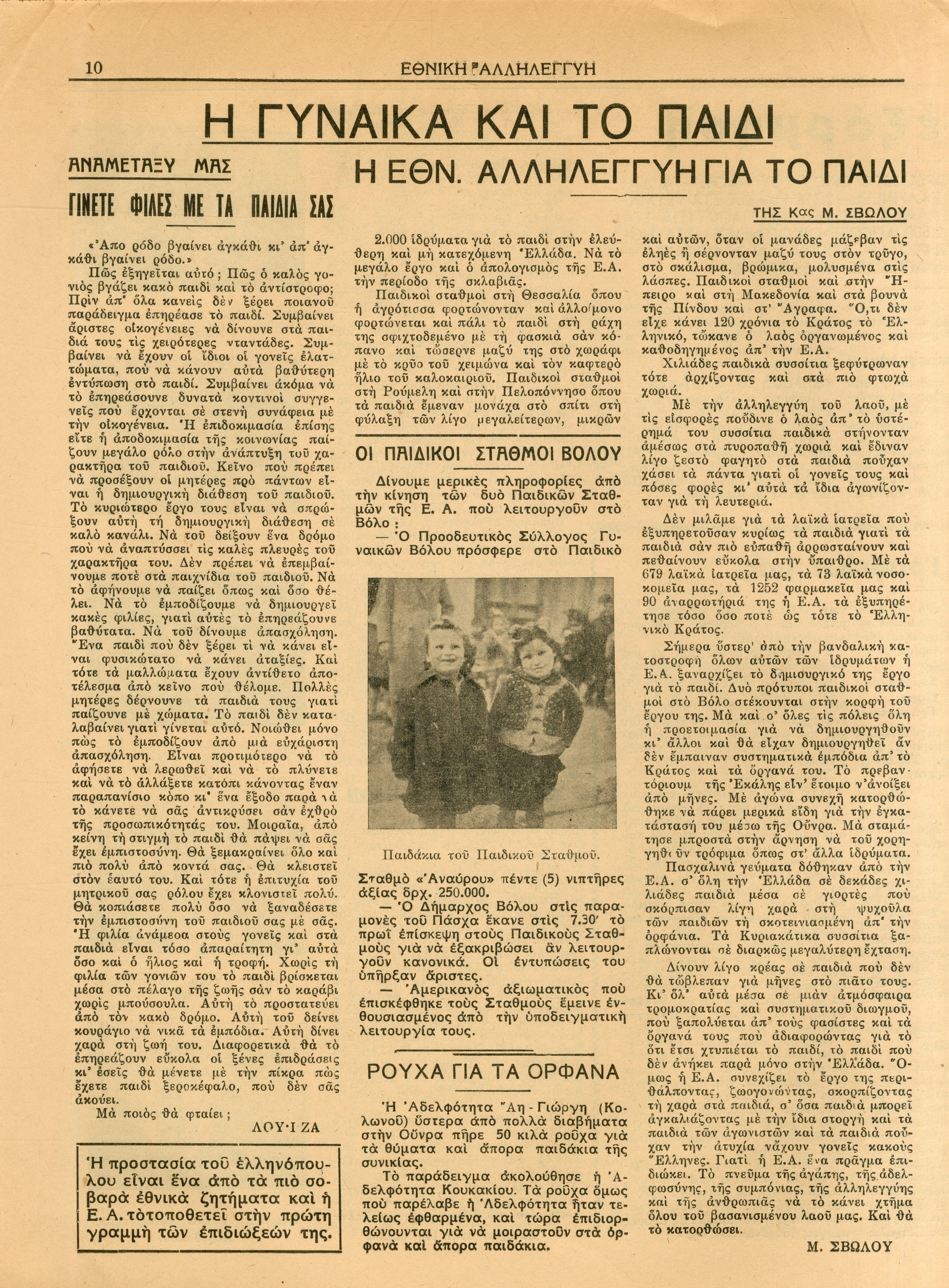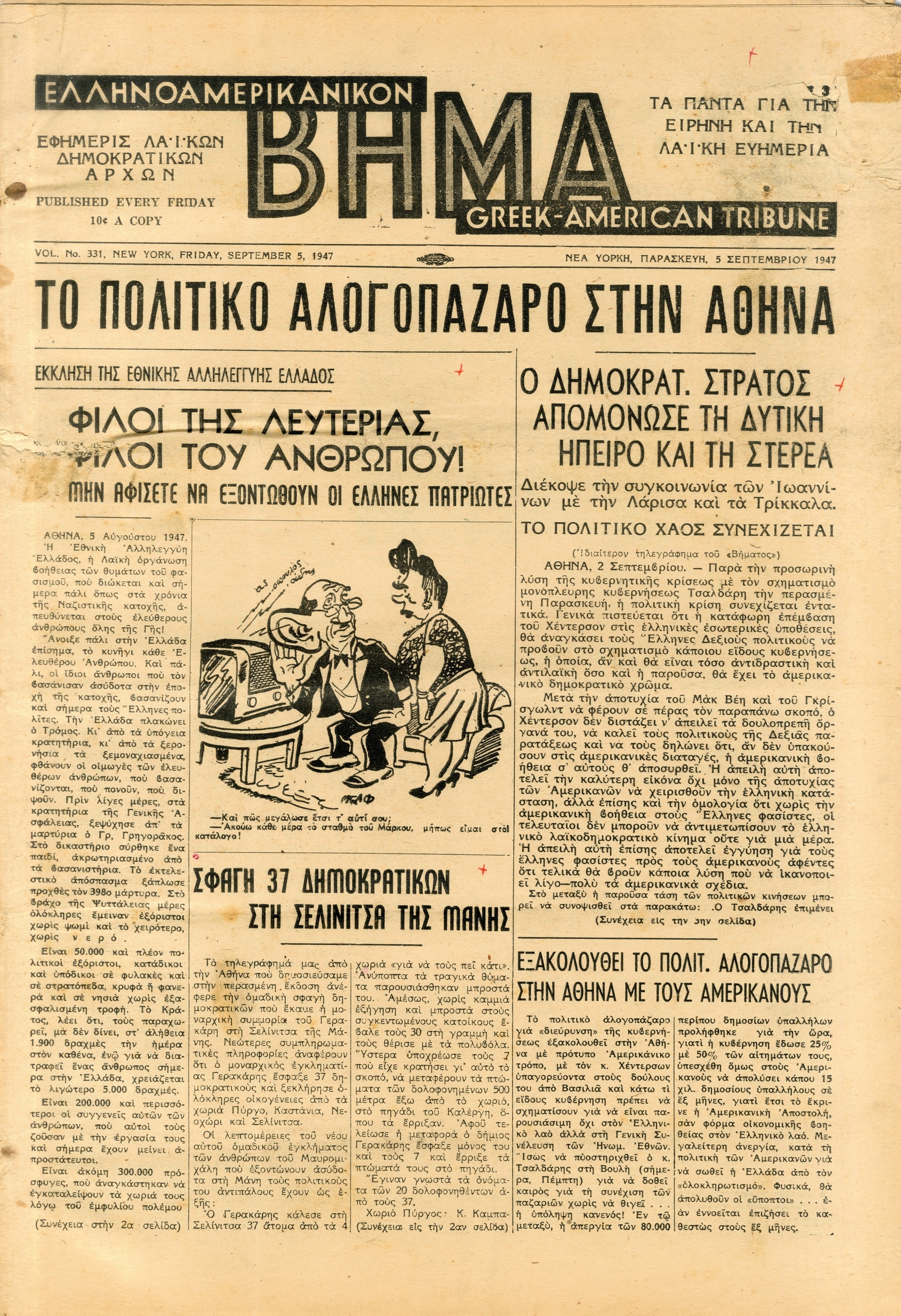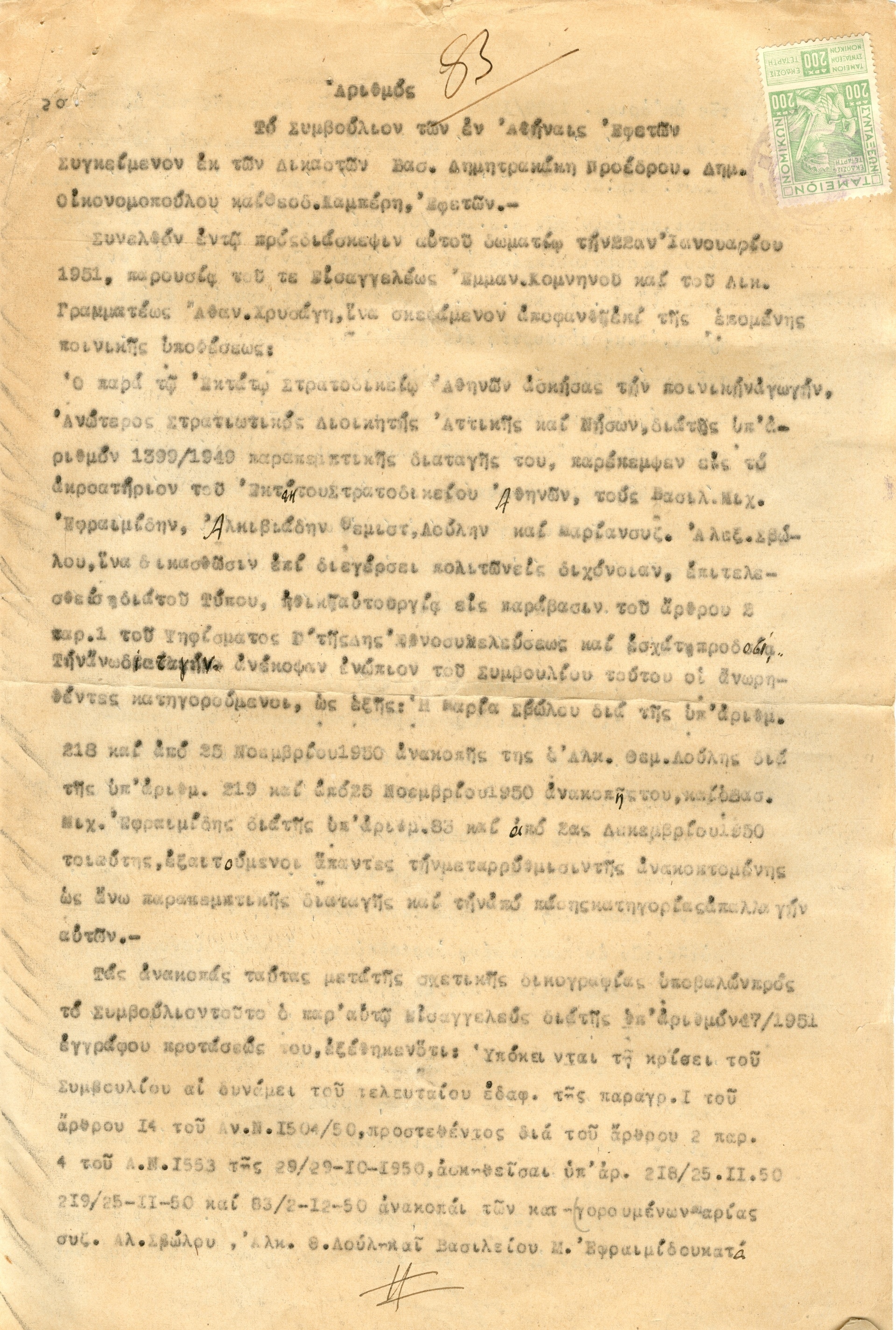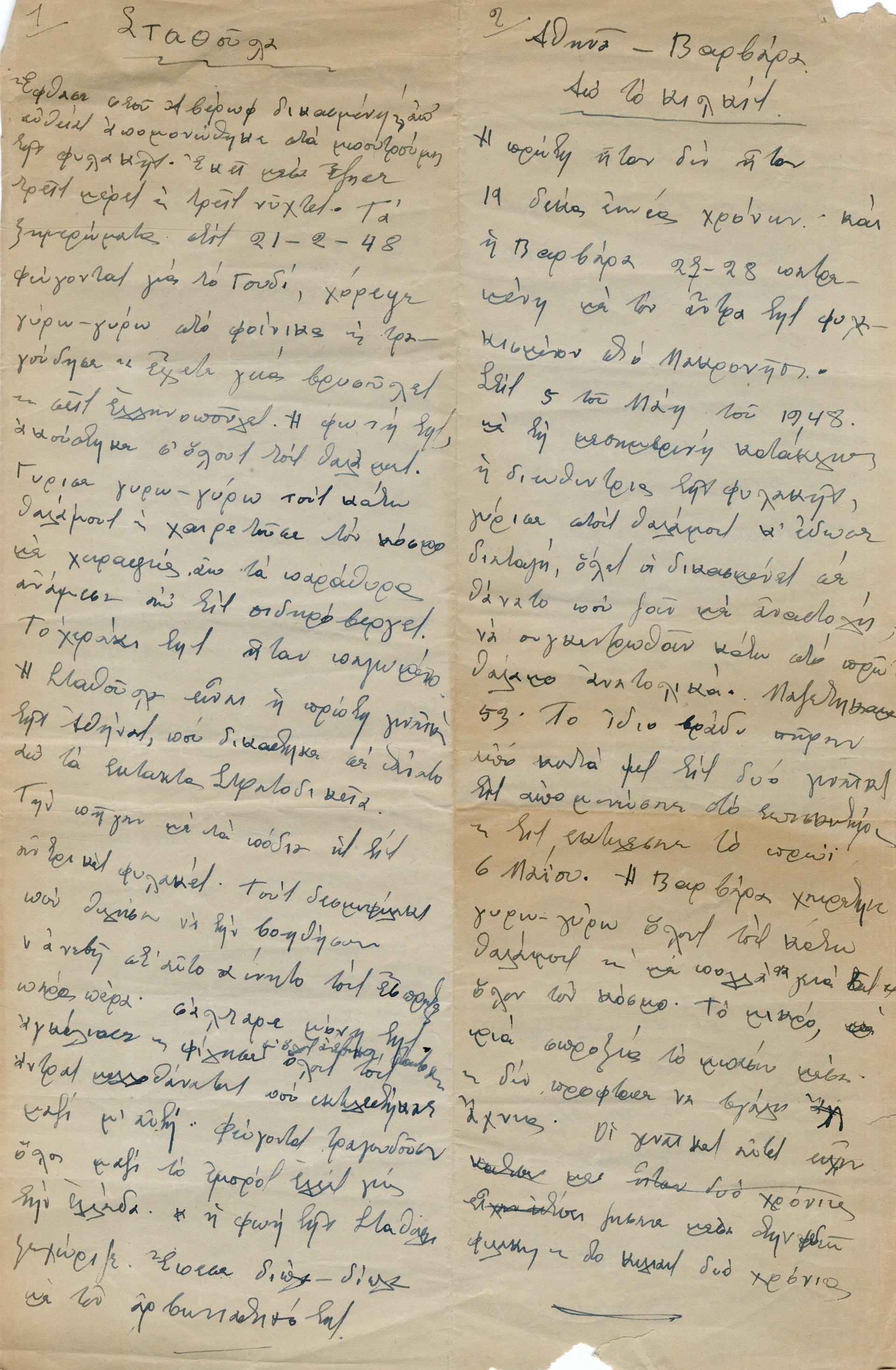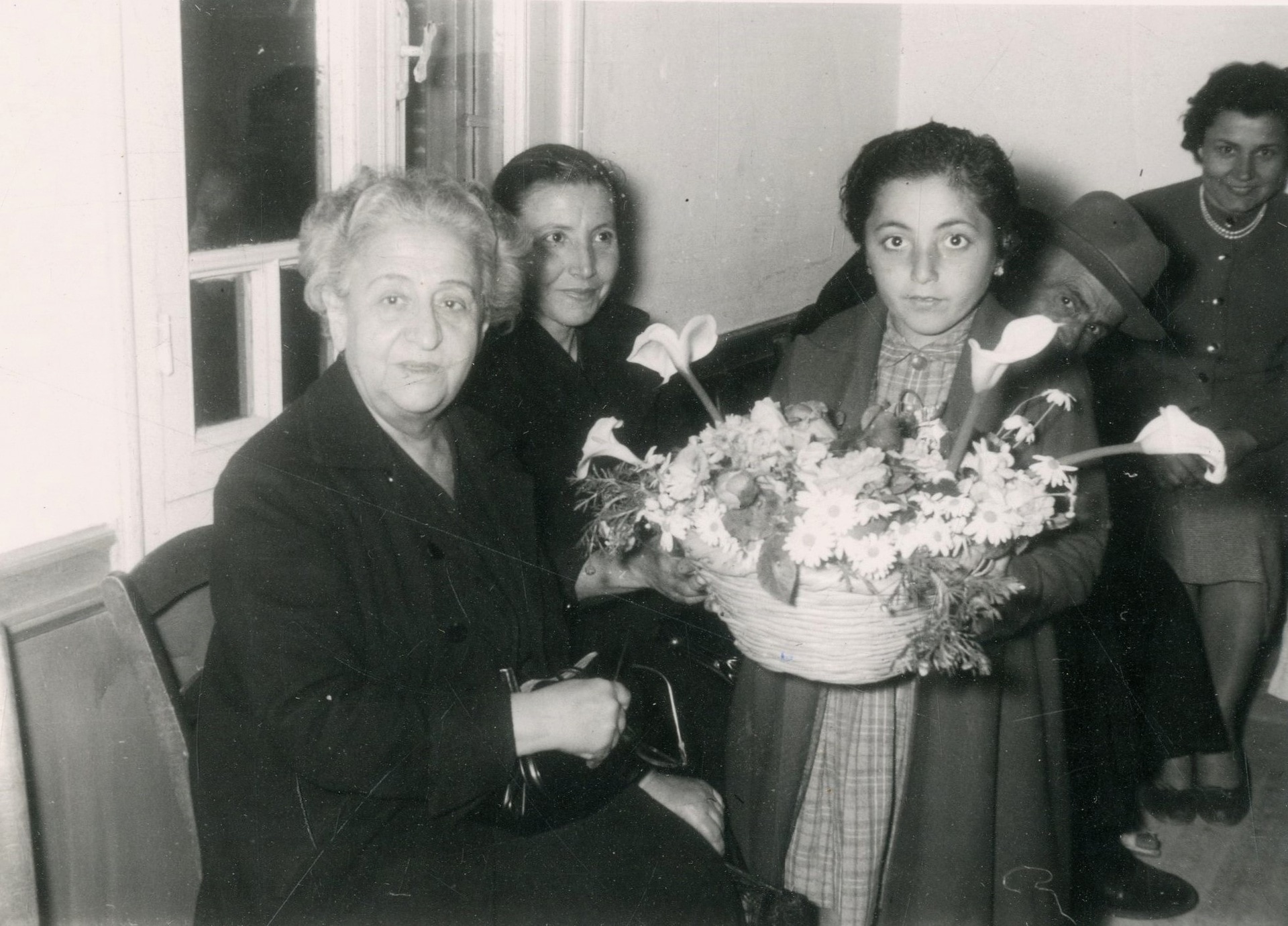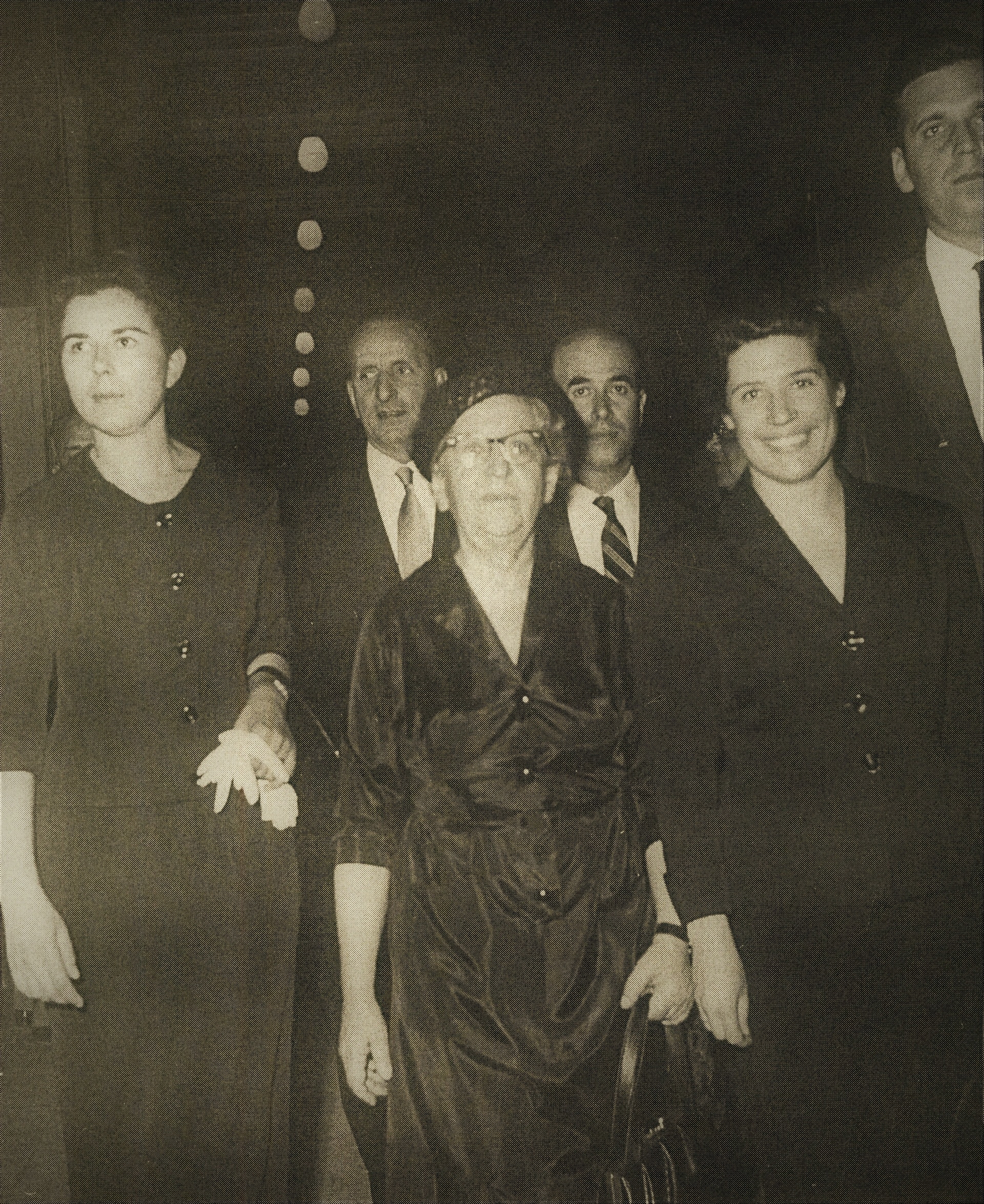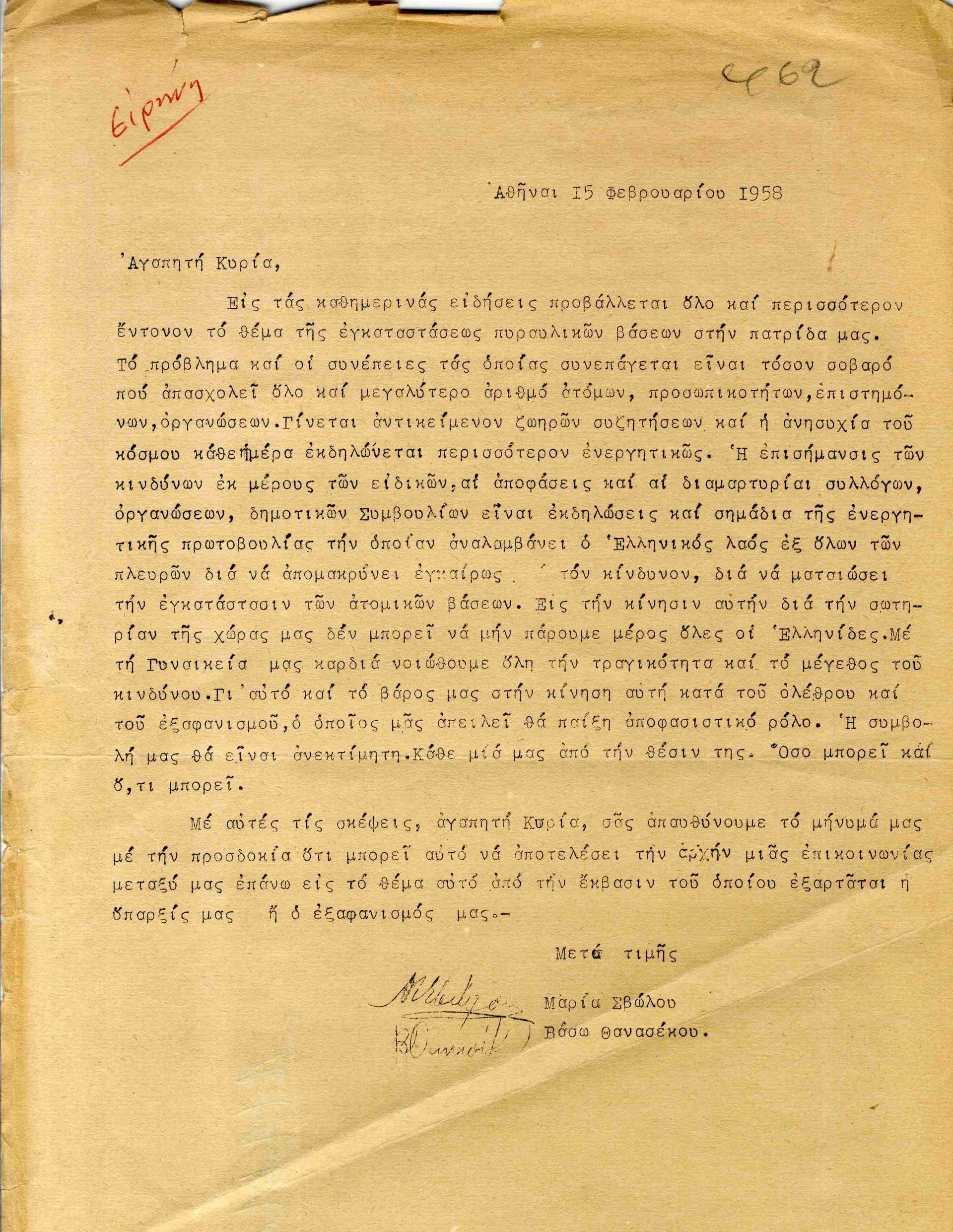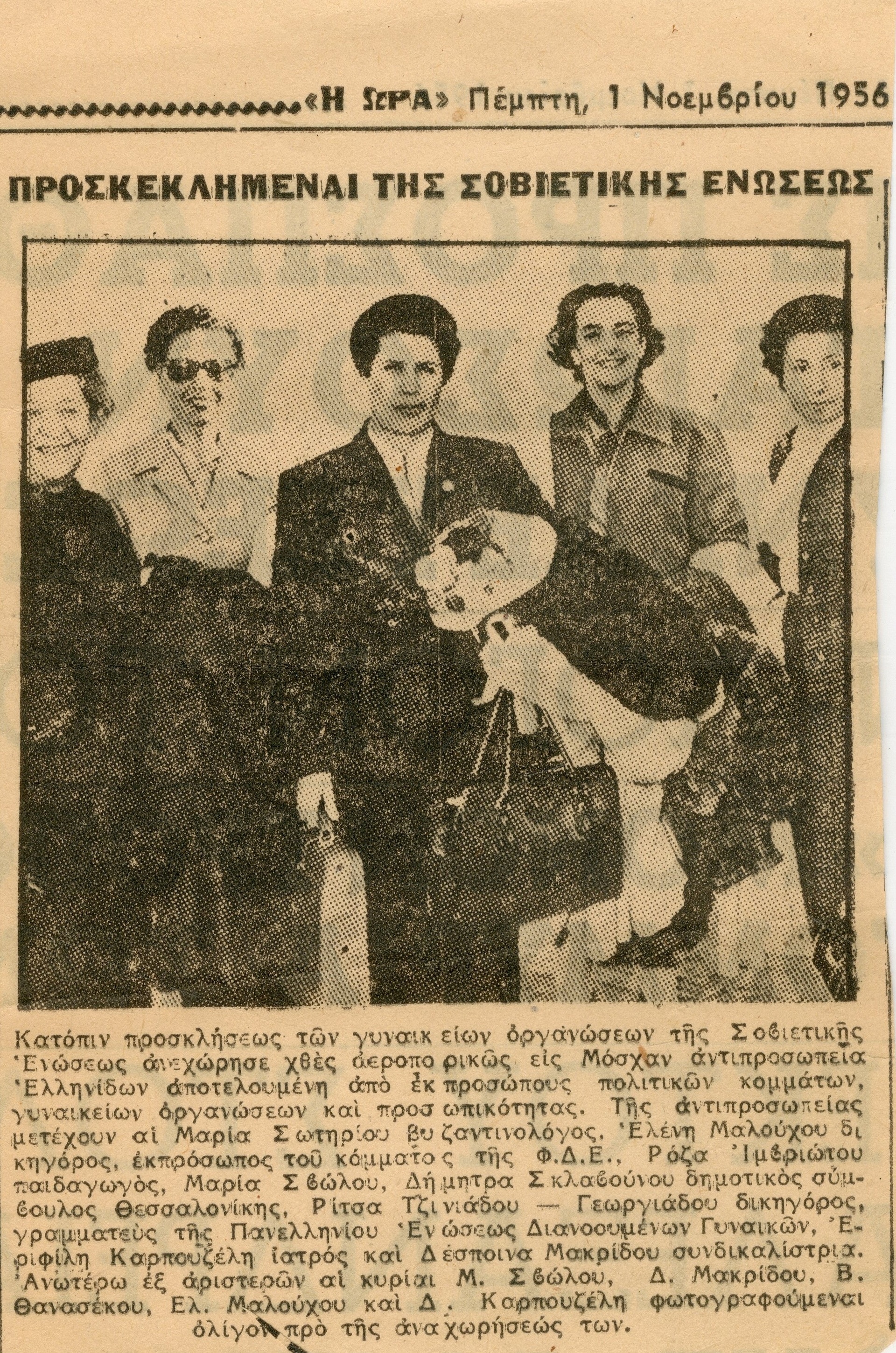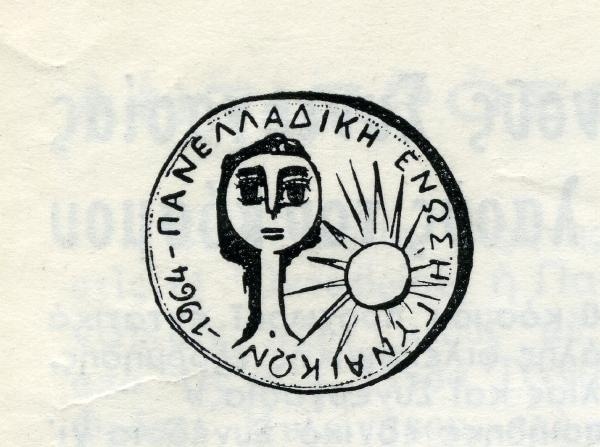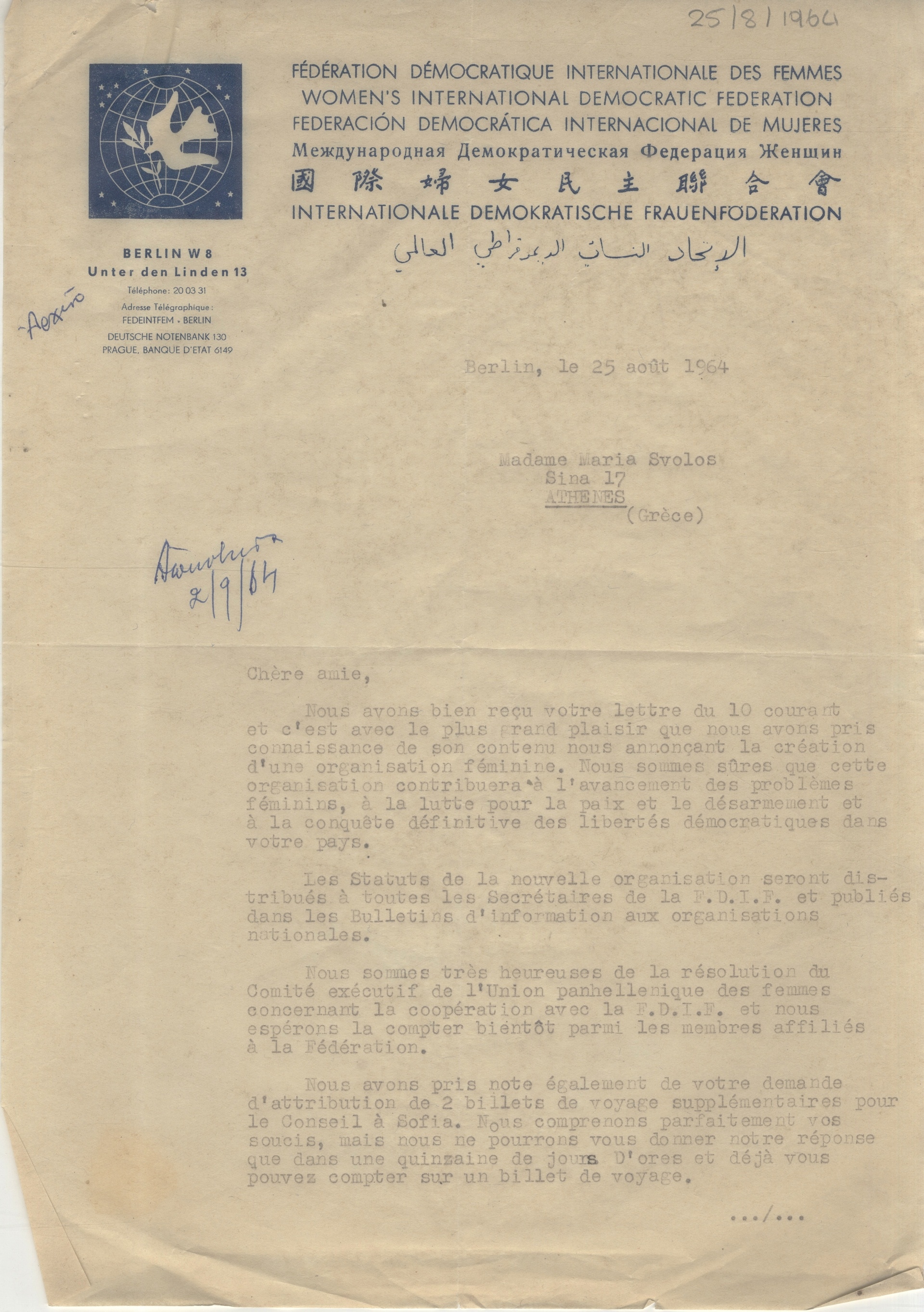Archives
- Archive of Maria Svolou
- Archive of Alexandros Svolos
- Archive of EDA
- Archive of Maria Karra, interview of Maria Karra with Tasoula Vervenioti
- O agonas tis gynaikas (The Struggle of the Woman)
Bibliography
- Kapola Ada, Panhellenic Union of Women (PEG): the creation and the stories of a women’s group in the short decade of 1960 (1964-1967), Master’s Thesis, Panteion University, Department of Political Science and History, 2008
- Pantelidou-Malouta Maro, Half a century of the female vote, half a century of women in Parliament, Institute of the Parliament of the Hellenes, Athens, 2006
- Samiou Dimitra, entry “Svolou Maria” in the Francisca de Haan, A Biographical Dictionary of Women’s Movements and Feminism: Central, Eastern, and South Eastern Europe, 19th and 20th Centuries, Central European University Press, 2006
- Svolou Maria, “Liga apo osa thymamai gia ton Glino” [A bit of what I remember about Glinos], Epitheorisi Tehnis [Art Review],119-120, November-December 1964, pp 539-544

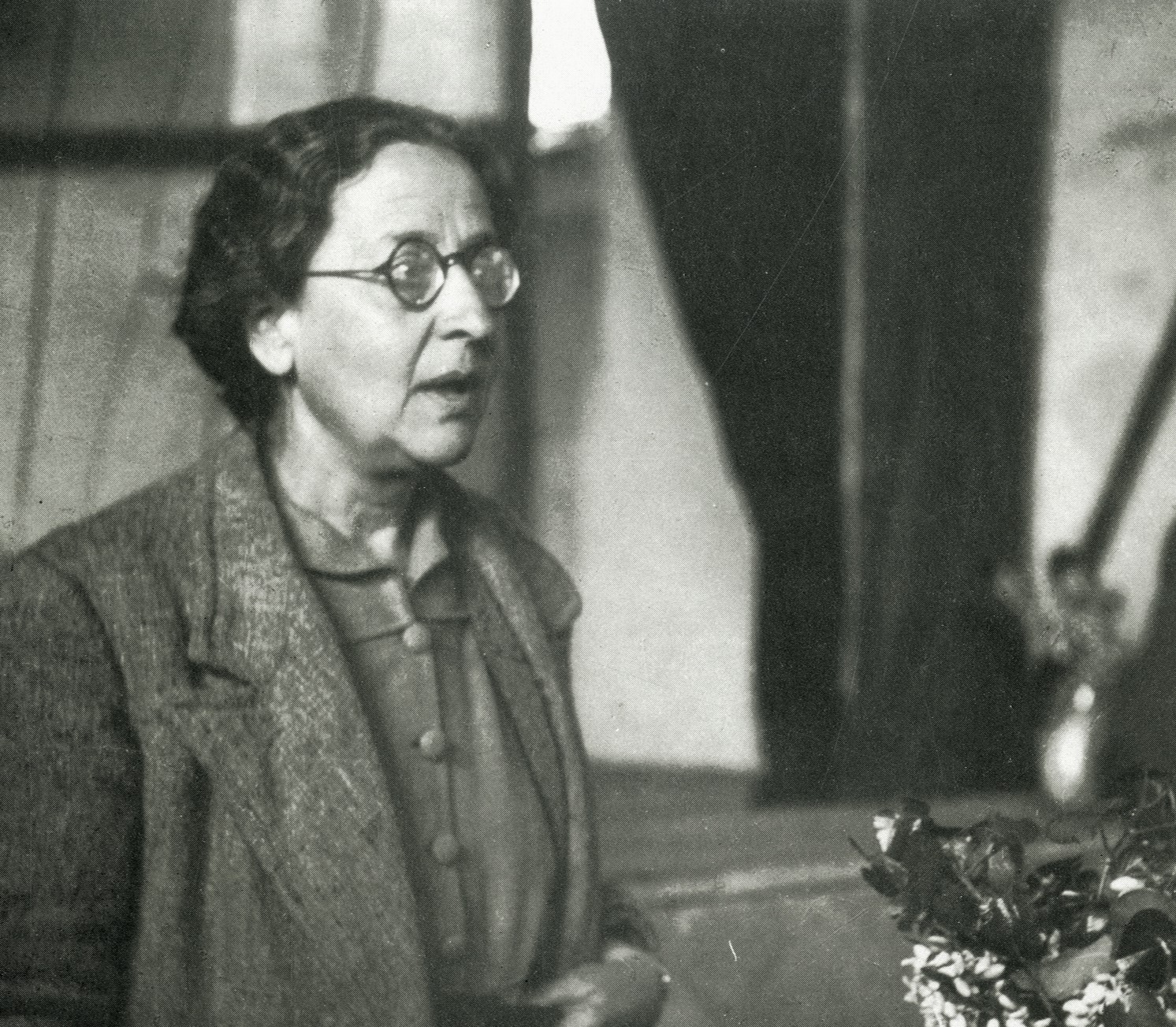
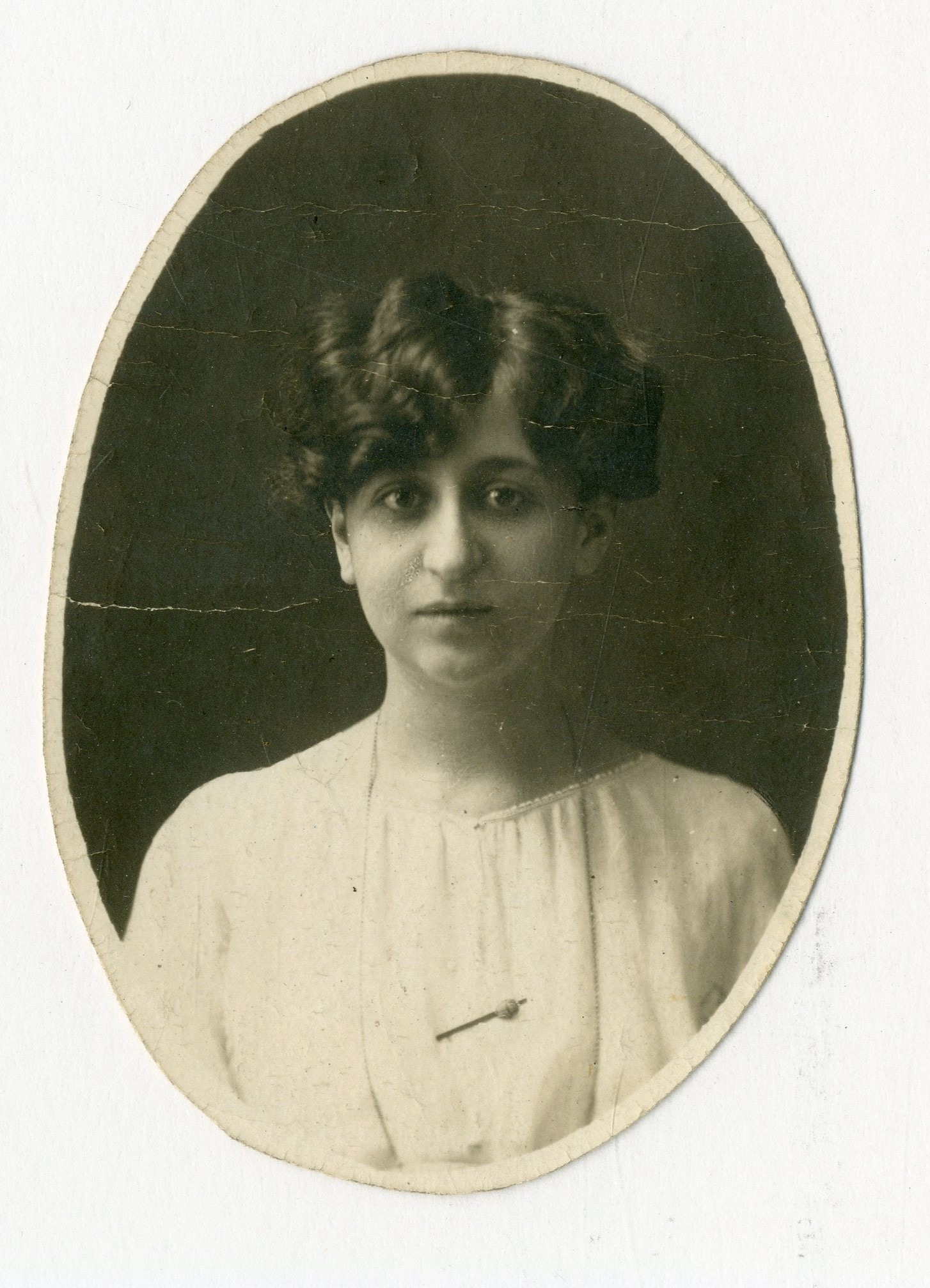
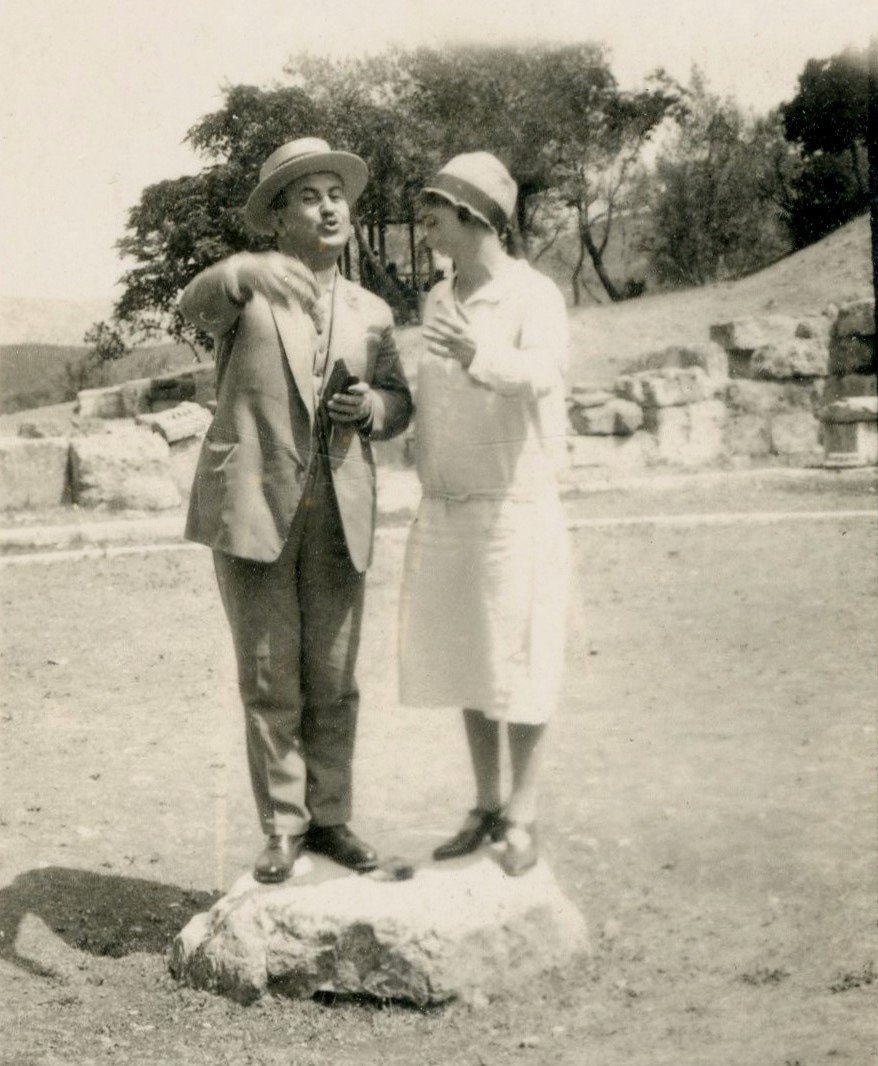
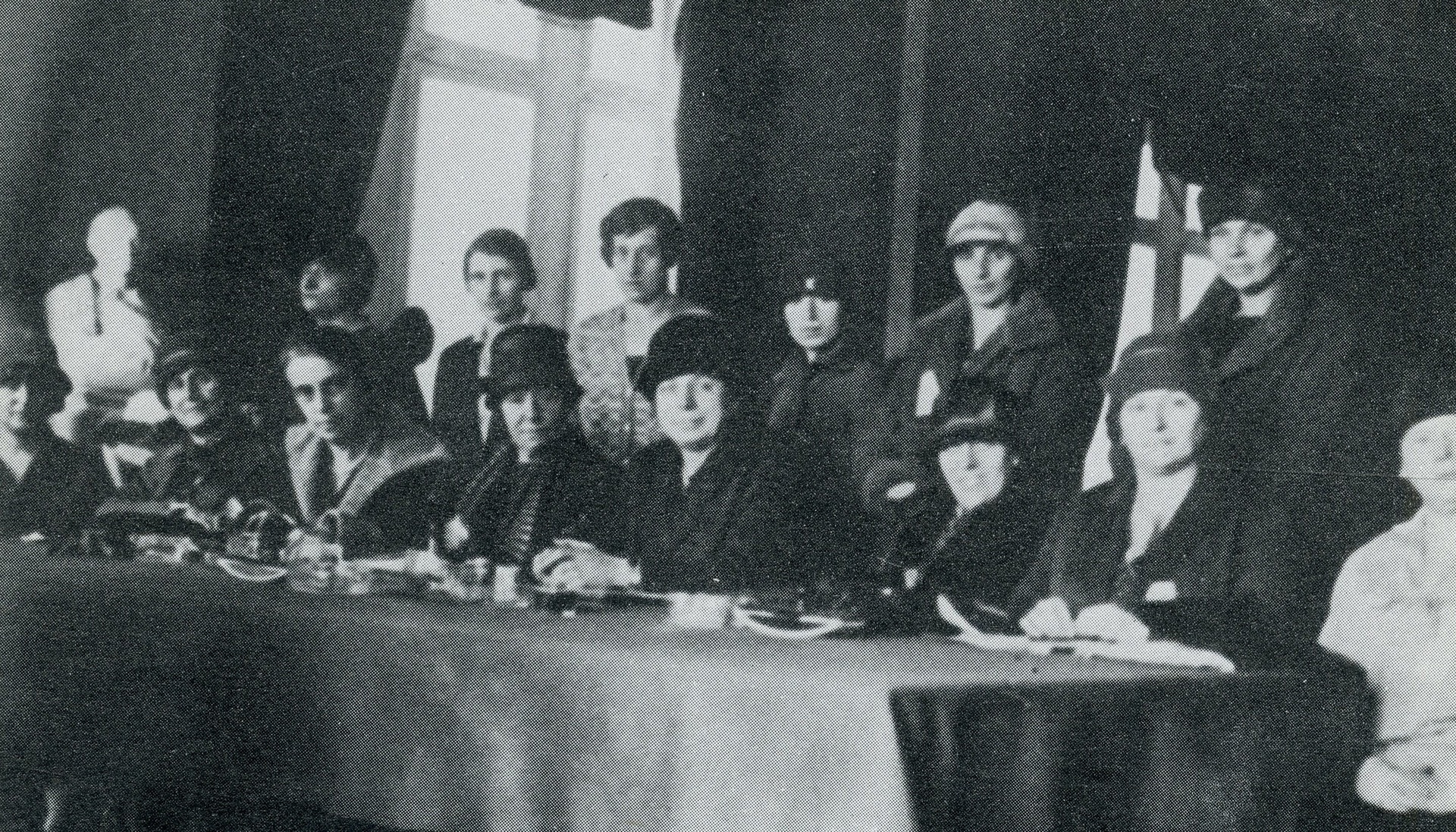
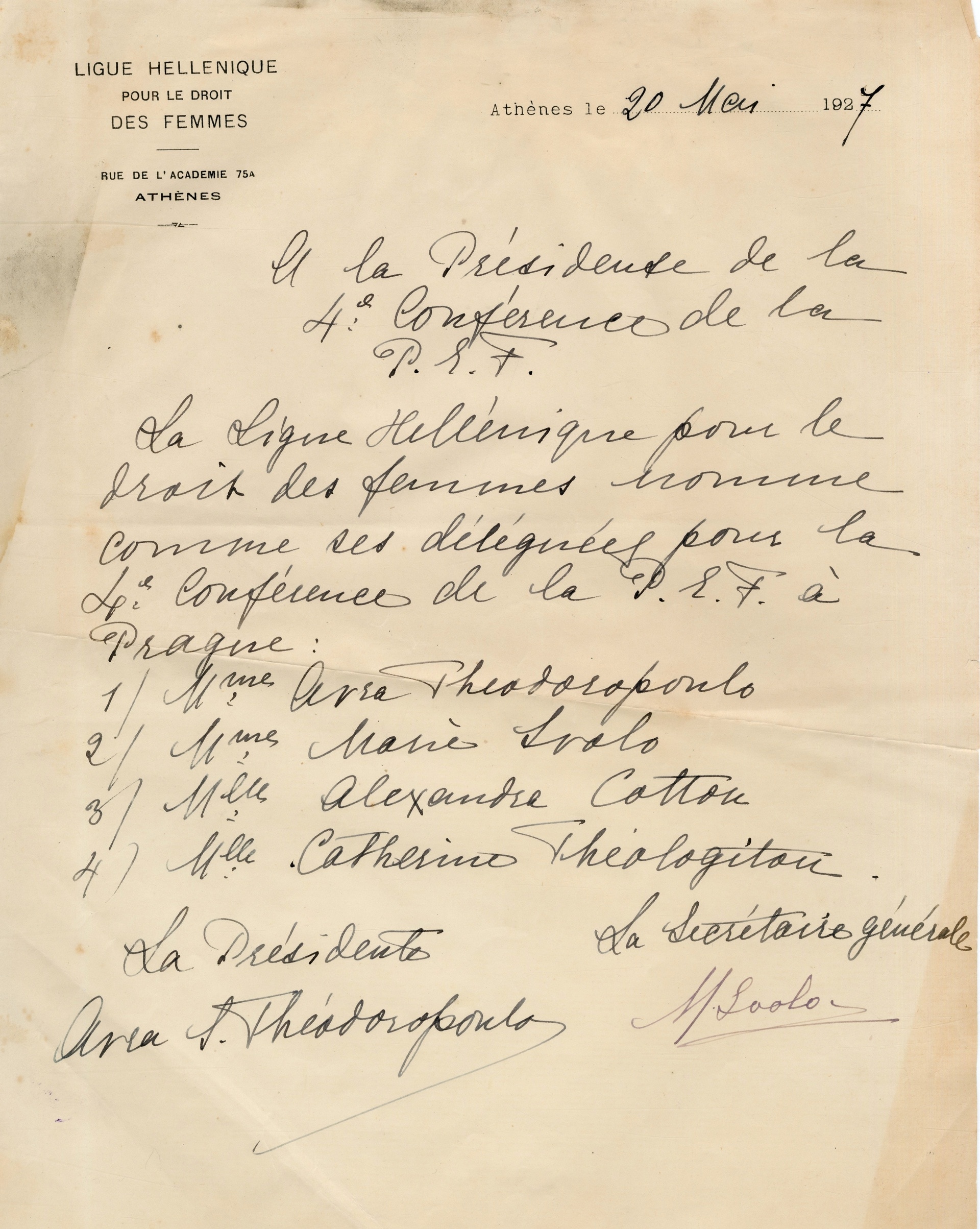
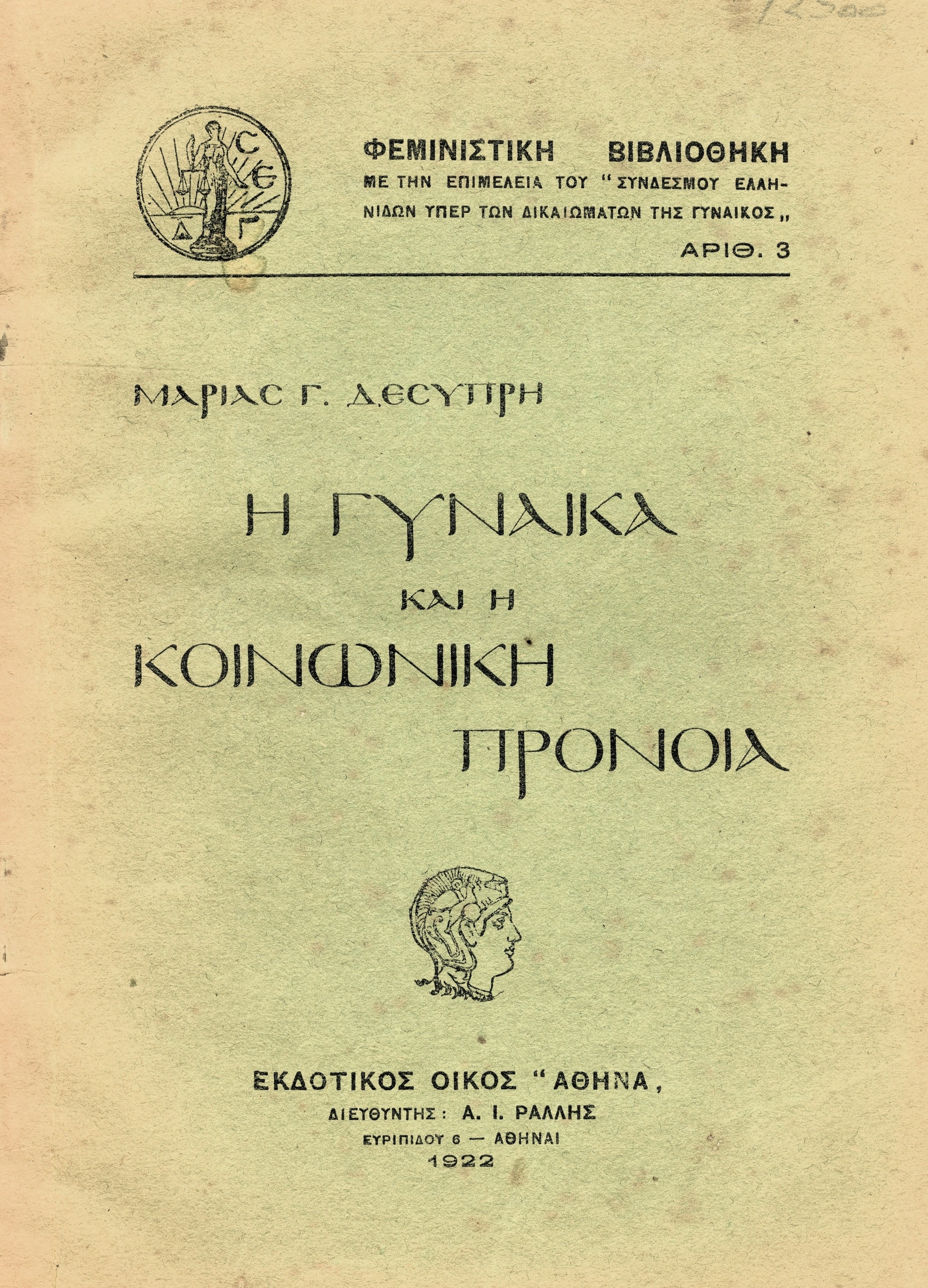
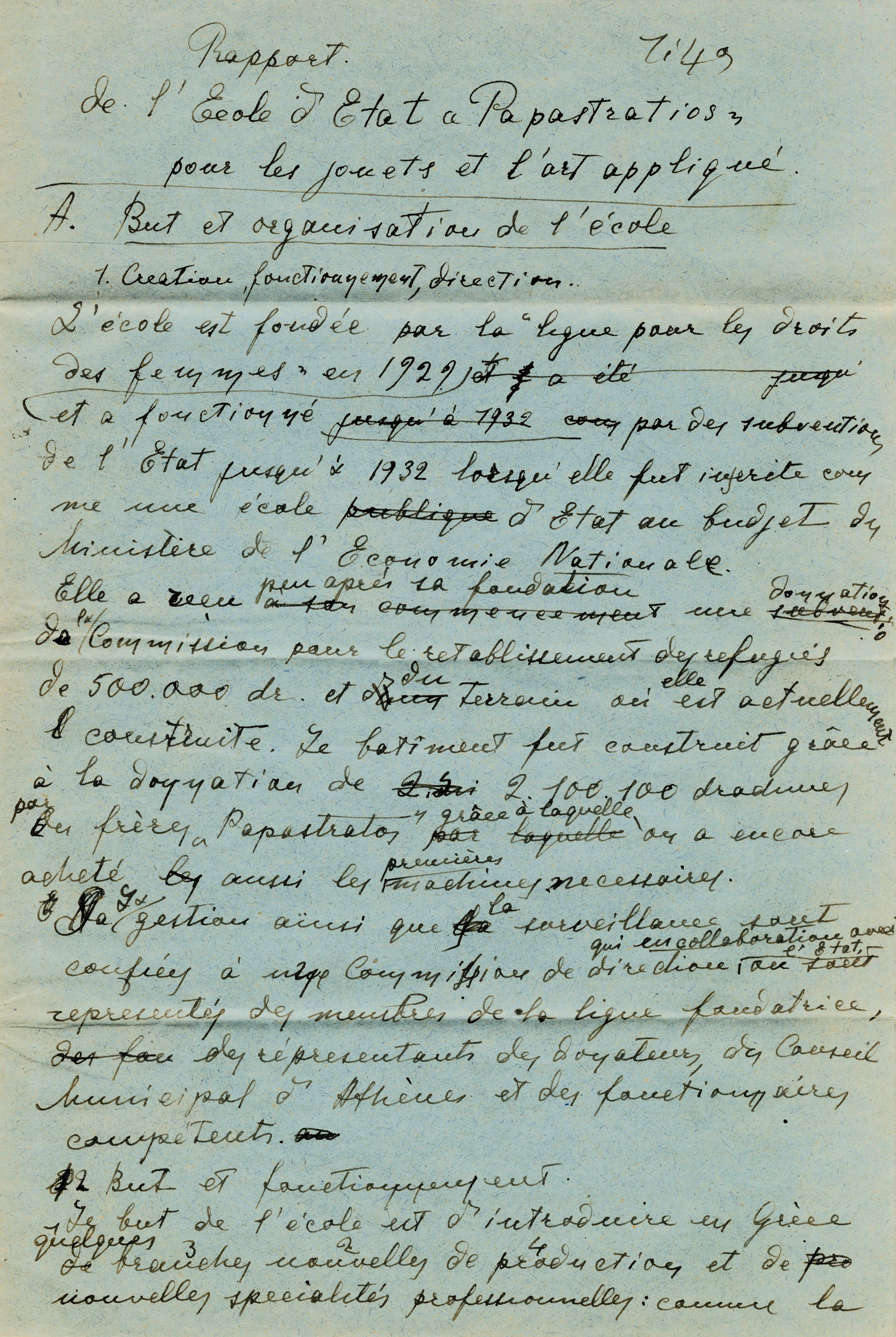
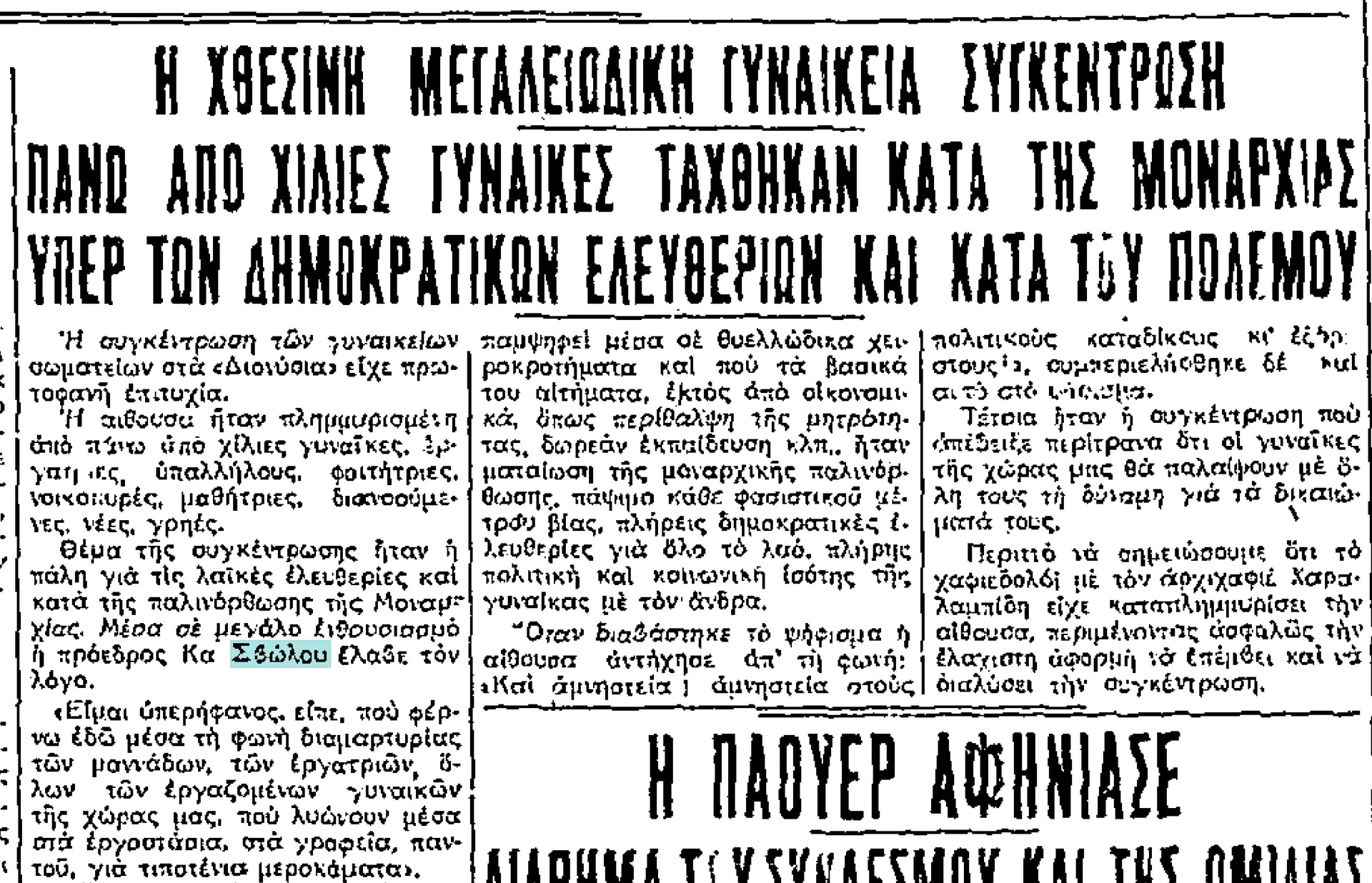
![Exiles on the Greek island of Anafi, during the dictatorship, 1936. Maria Svolou seated in the centre (behind the child) and second from her left is her husband Al. Svolos. (Magazine Epitheorisi Technis [Art Review], ASKI Library) - ASKI](https://aski.gr/wire/wp-content/uploads/2024/02/ASKI_Svolou_09.jpg)
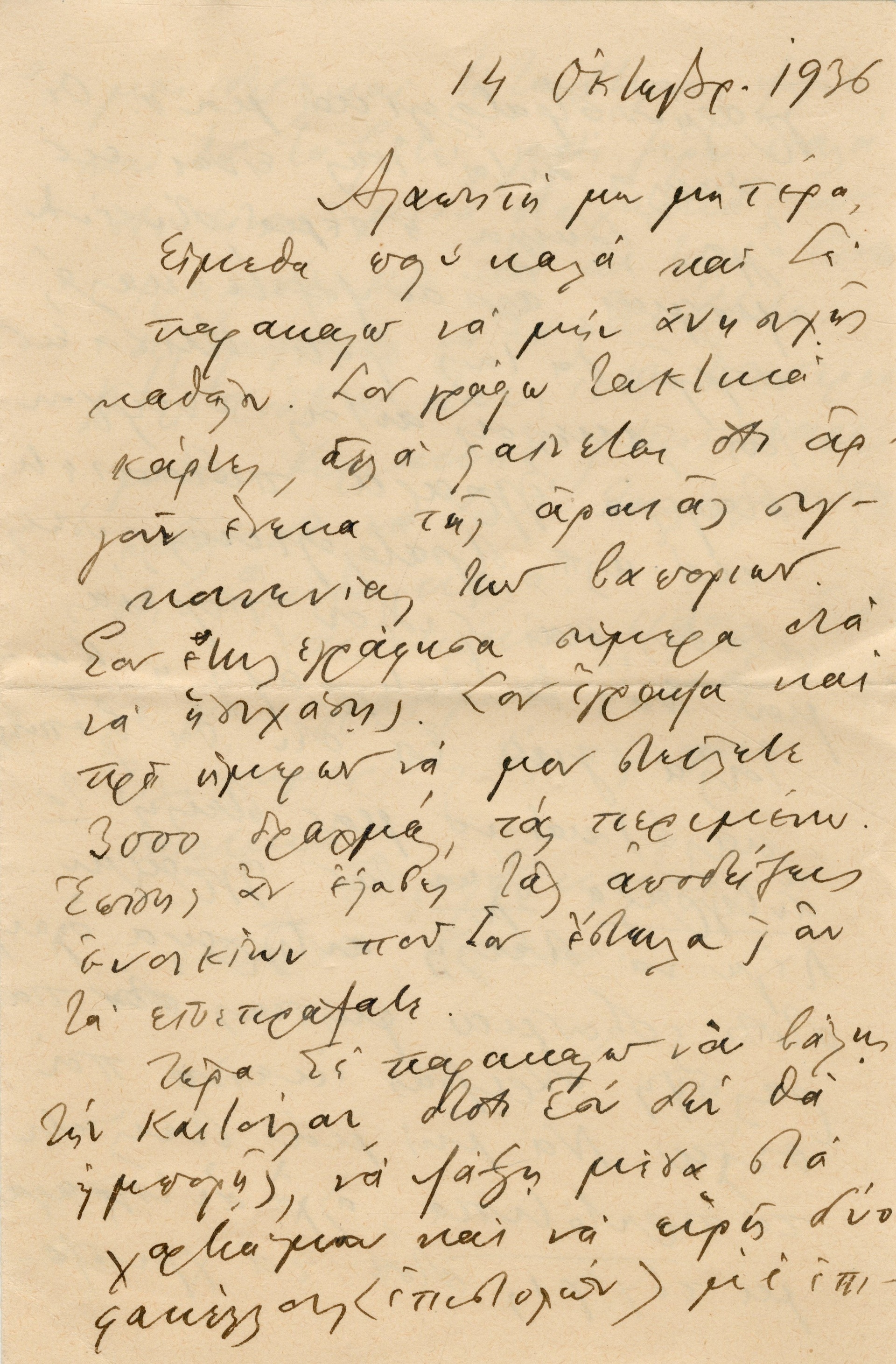
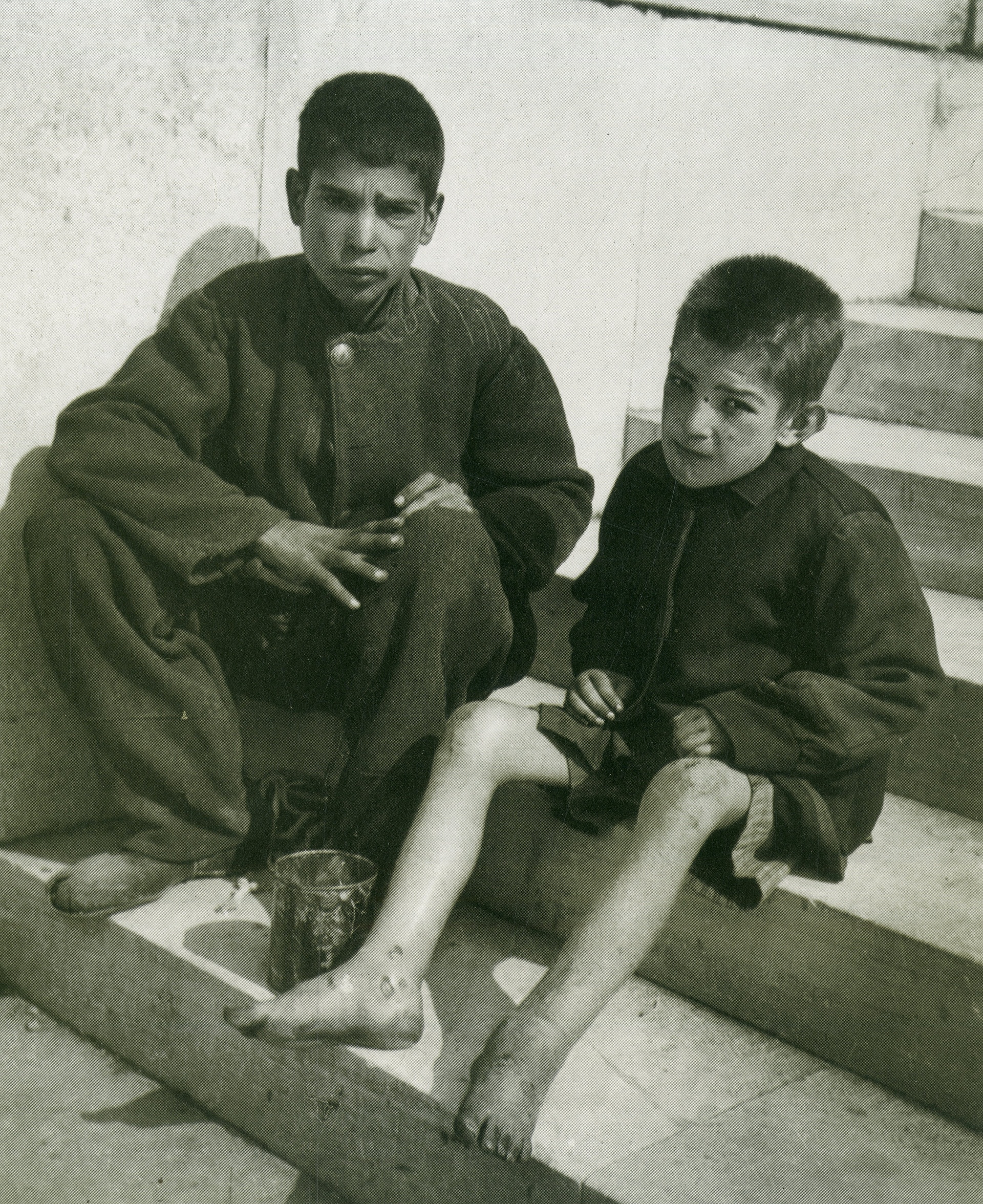
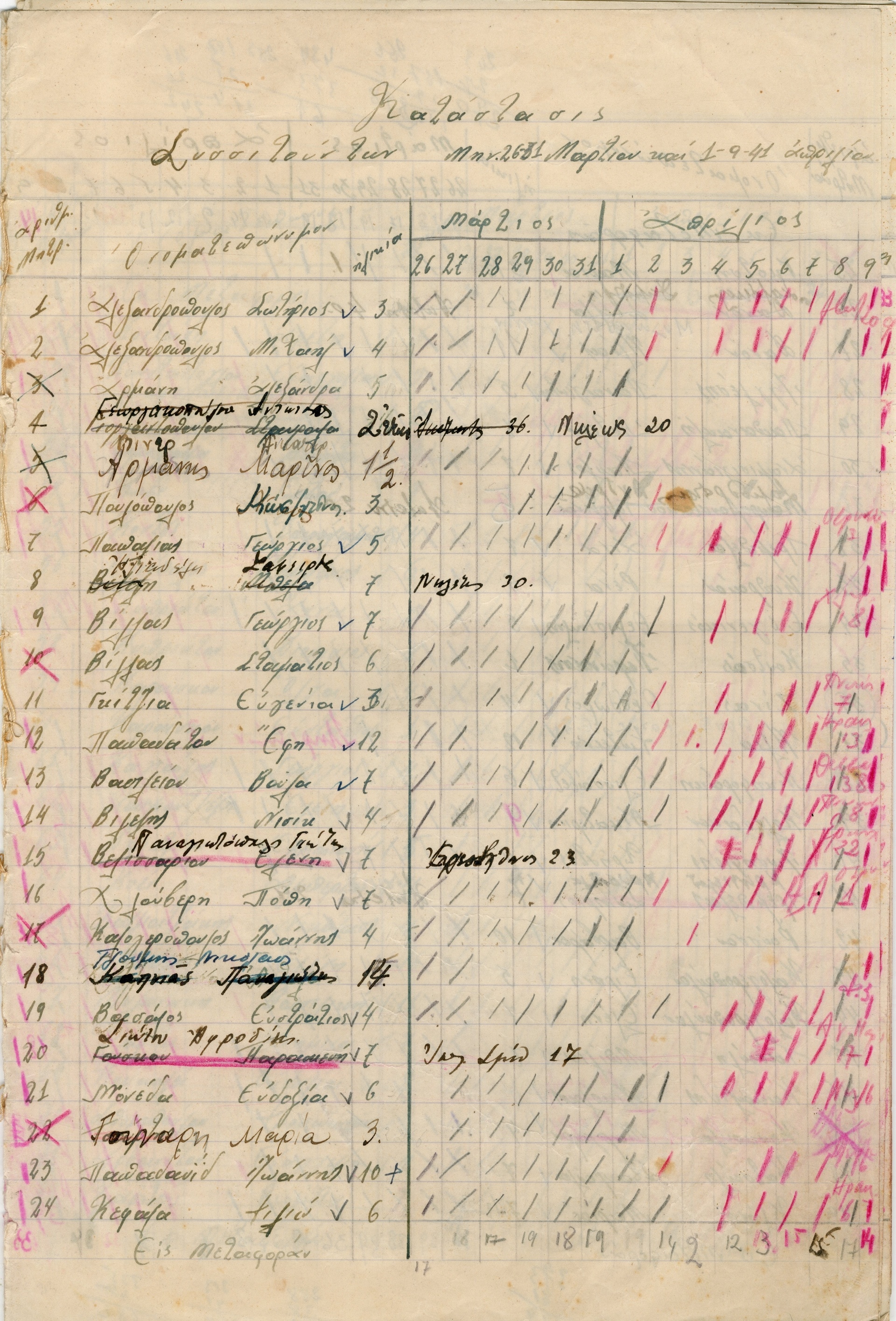
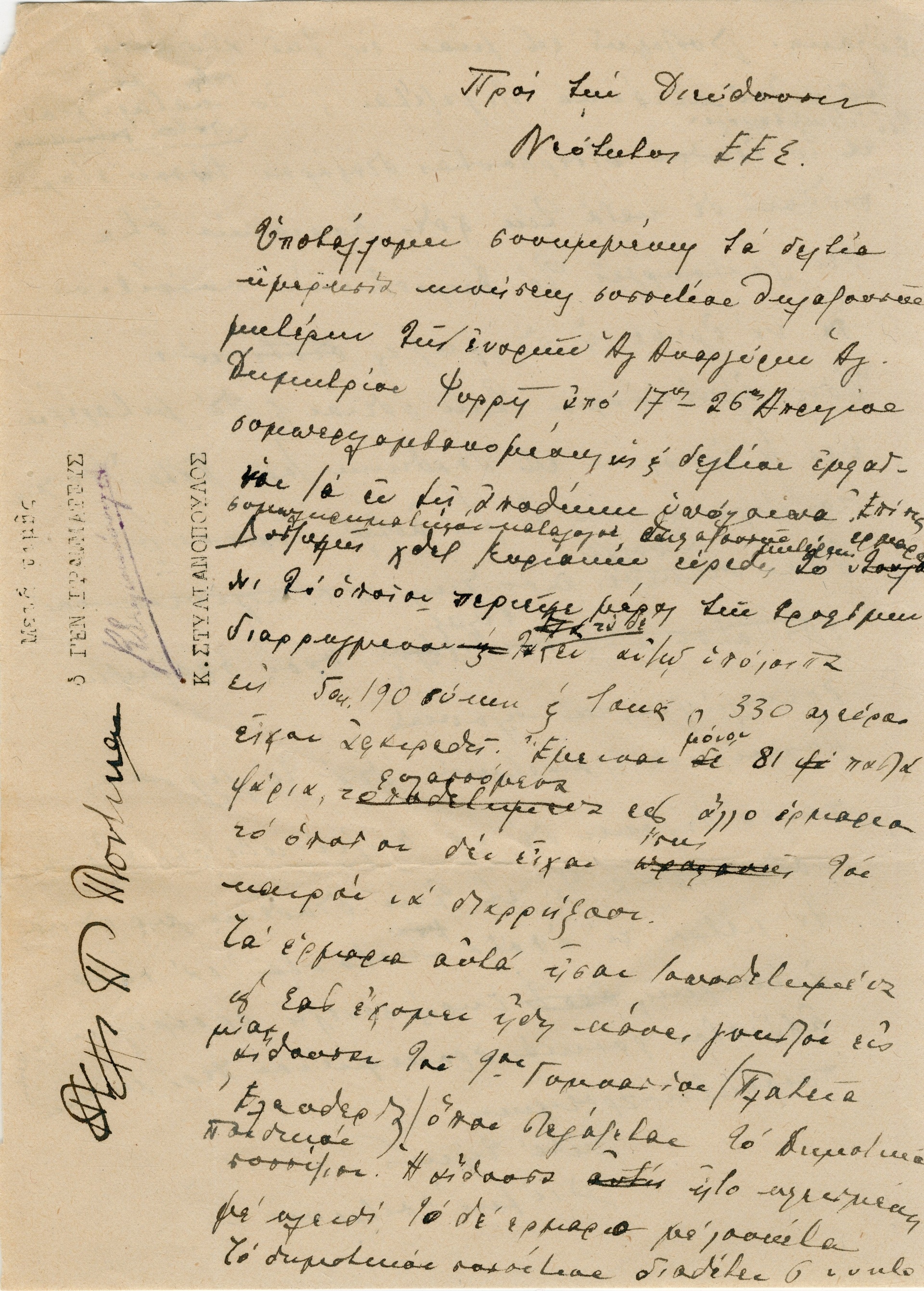
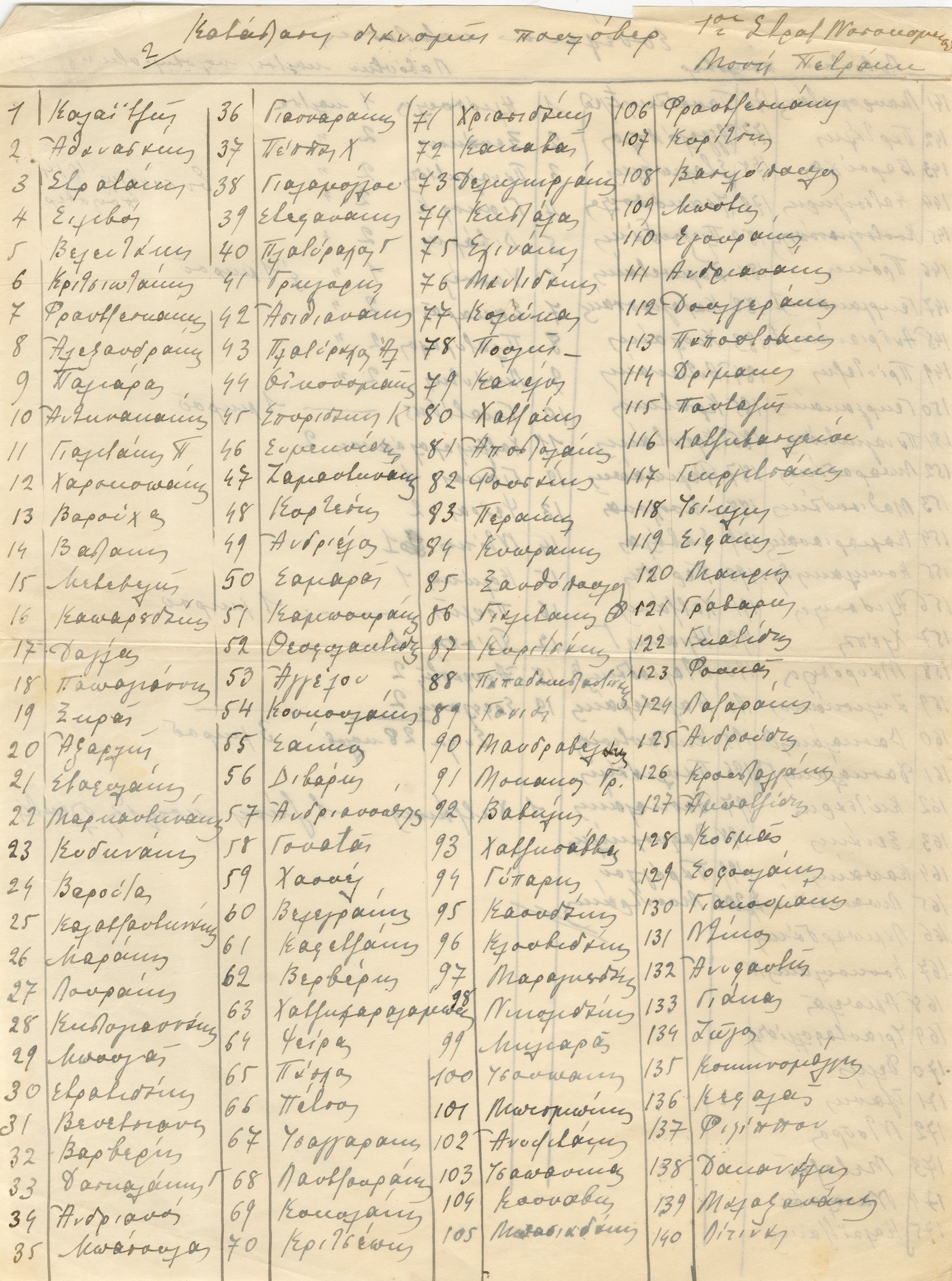
![Later cover of the magazine of the Greek resistance organisation EPON, Nea Genia [New Generation], 1946. The magazine was first published during the Occupation in 1943 under illegal conditions (ASKI Library) - ASKI](https://aski.gr/wire/wp-content/uploads/2024/02/ASKI_Svolou_15.jpg)
